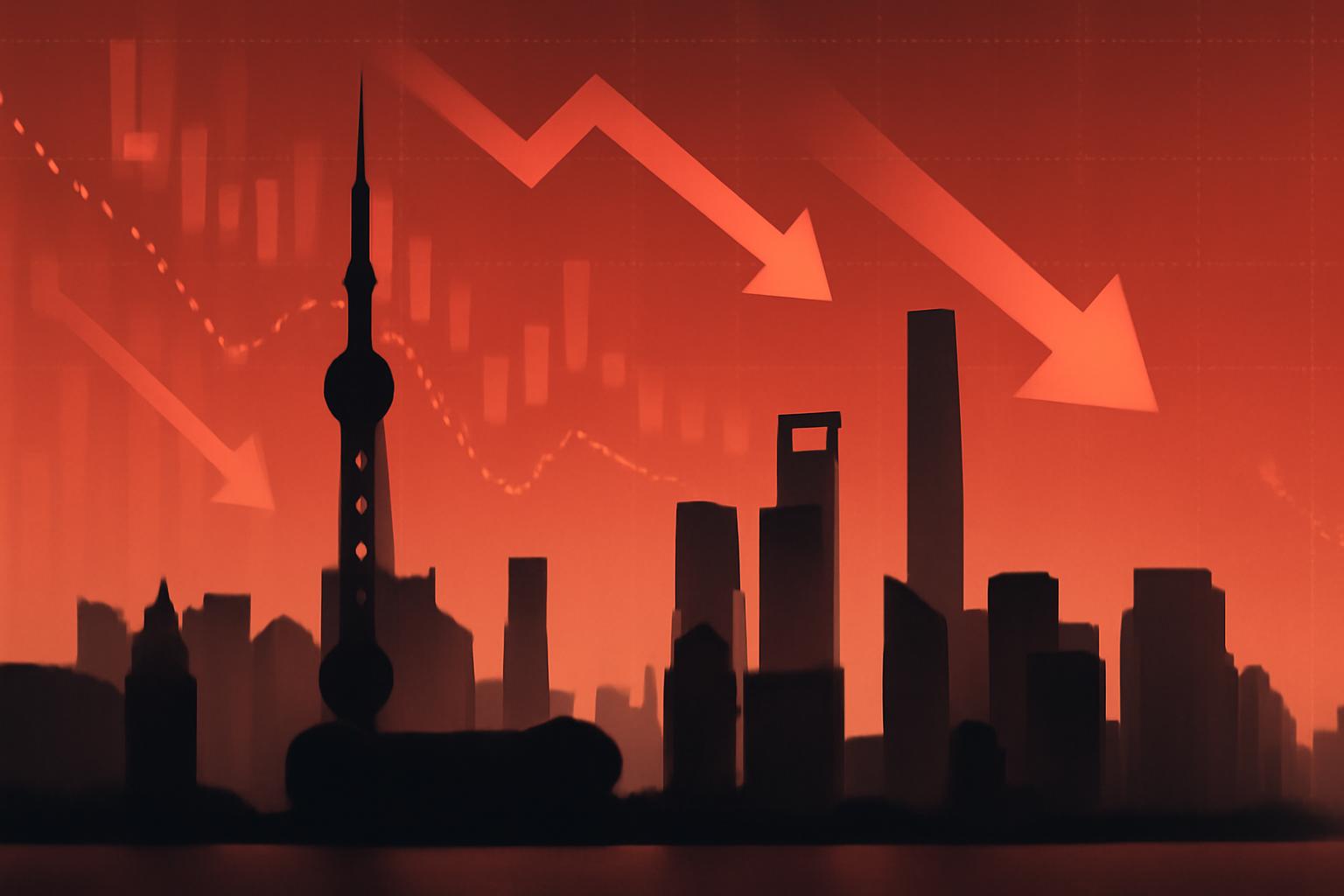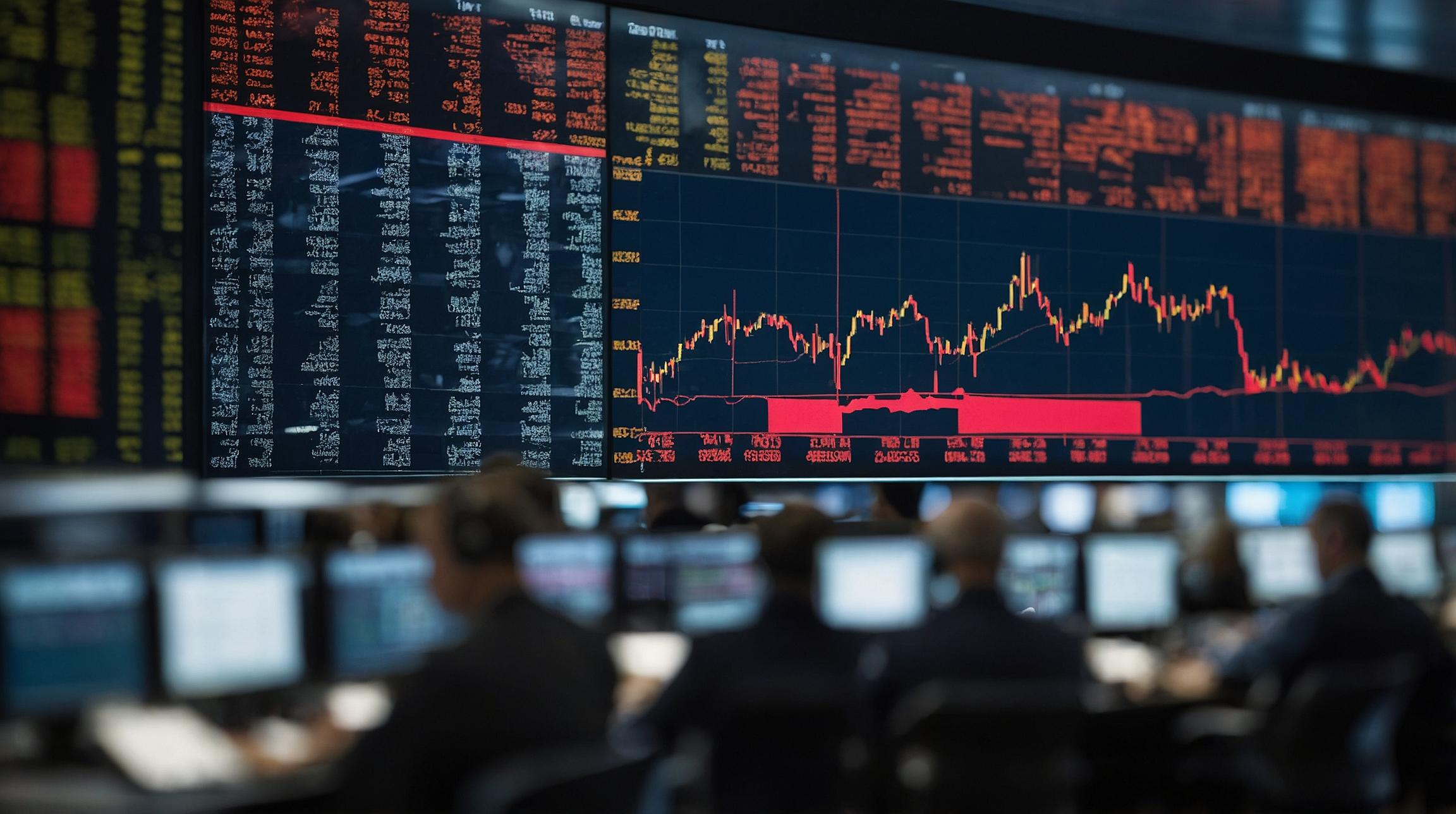China’s Economic Growth Decelerates in August
China’s economic momentum weakened further in August as key metrics including retail sales, industrial output, and fixed-asset investment failed to meet market expectations. The National Bureau of Statistics (NBS) reported that retail sales rose 3.4% year-on-year, below the 3.9% forecast in a Reuters poll and down from July’s 3.7% growth. Industrial output expanded 5.2%, marking its slowest pace since August 2024 and missing the anticipated steady growth from July.
Investment and Real Estate Drag on Growth
Fixed-asset investment showed a modest 0.5% increase year-to-date through August, significantly slower than the 1.6% growth recorded in the first seven months of the year and below the 1.4% expected by economists. The real estate sector remains a major drag, with investment contracting 12.9% over the first eight months, reflecting a deepening slump. Conversely, investment in manufacturing and utilities rose 5.1% and 18.8%, respectively, supported largely by state-owned enterprises.
Yuhan Zhang, principal economist at The Conference Board’s China Center, noted that private sector investment continues to contract, while state-driven spending on infrastructure, high-tech, and industrial upgrades provides uneven support. The real estate downturn remains a significant hurdle to broader economic recovery.
Labor Market and Price Indicators
Urban unemployment edged up to 5.3% in August from 5.2% in July, with the NBS linking the increase to the graduation season. The consumer price index (CPI) fell 0.4% year-on-year, exceeding expectations for a milder decline, while producer prices continued to deflate for a third consecutive year. NBS spokesperson Fu Linghui highlighted uncertainties related to imported inflation pressures, including a weakening yuan and rising global commodity prices, alongside domestic policies aimed at curbing excessive competition.
Consumption Patterns and Sectoral Performance
Excluding automobiles, retail sales grew 3.7% in August, with rural consumption outpacing urban growth at 4.6%. Categories such as gold, silver, jewelry, sports and entertainment products, and furniture saw double-digit growth, while petroleum, tobacco, and alcohol sectors lagged. Service consumption, particularly in travel, leisure, and transport, gained traction, suggesting a gradual shift toward service-oriented spending.
Goldman Sachs economist Lisheng Wang attributed the slowdown in retail sales to fading stimulus effects from government trade-in subsidies and flagged the likelihood of further consumption deceleration in coming months due to unfavorable base effects. Wang emphasized the need for targeted policy easing to sustain consumer demand.
Market Reaction and Outlook
Following the data release, the CSI 300 index rose nearly 1%, reflecting investor anticipation of the slowdown. Zhiwei Zhang, chief economist at Pinpoint Asset Management, remarked that the deceleration was broadly expected as previous export and fiscal stimulus boosts wane. While Beijing may incrementally enhance fiscal support, a large-scale stimulus package appears unlikely unless growth falls significantly short of the 5% annual target.
The NBS cautioned that multiple external and domestic risks persist, urging continued macroeconomic policy implementation focused on employment, market stability, reform, and innovation to foster sustainable growth.
FinOracleAI — Market View
China’s August economic data underscores persistent domestic demand weakness and structural challenges, particularly in real estate and private investment. The underperformance relative to expectations may temper short-term market sentiment, although limited fiscal stimulus and steady state-driven investment could provide some support.
Key risks include prolonged deflationary pressures and labor market softness, while policymakers’ willingness to introduce targeted easing will be critical to monitor. Investors should watch for signals from upcoming policy meetings and any shifts in real estate sector support.
Impact: negative













